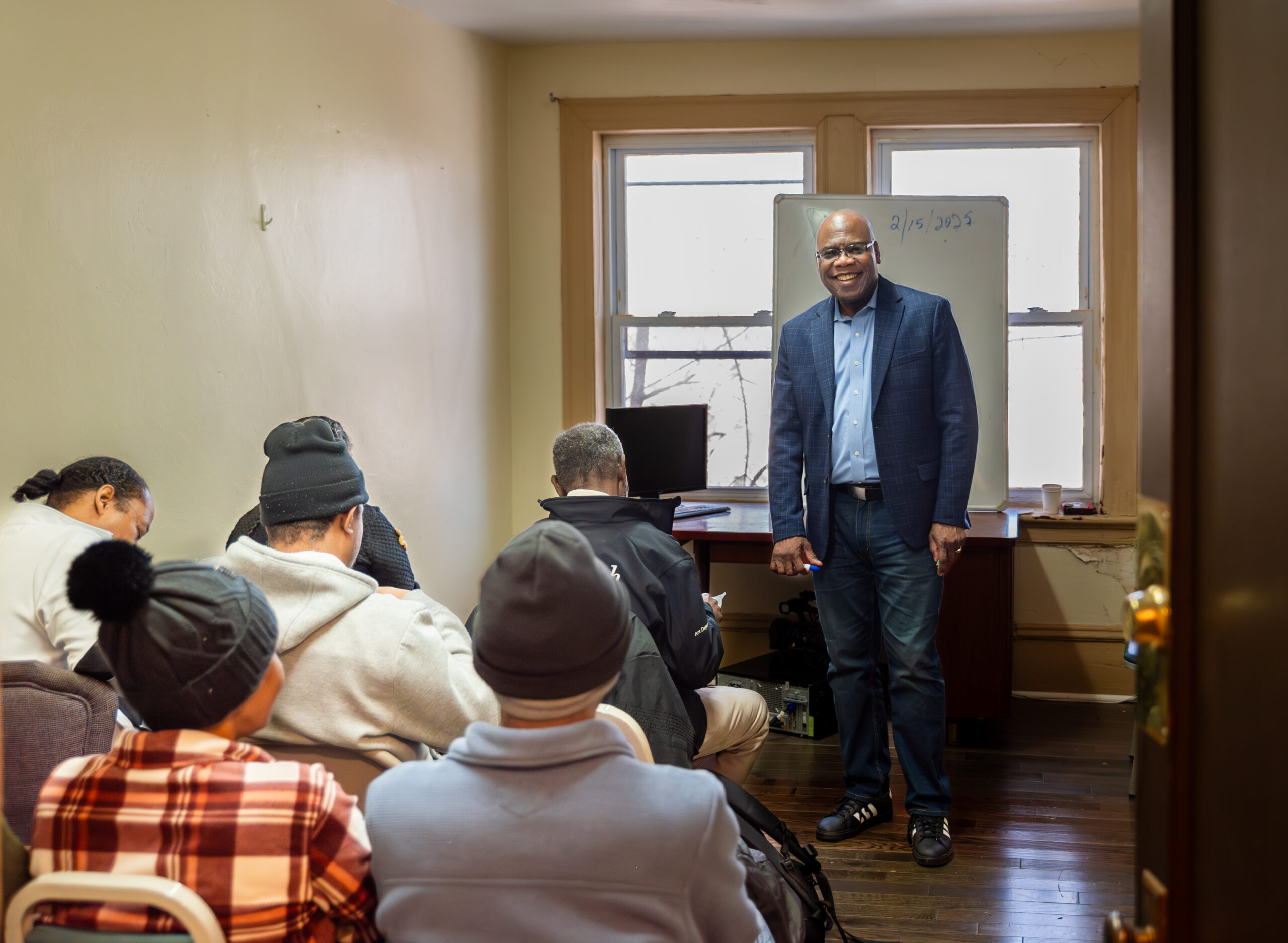More than words: ABHMS-backed ESL program equips Haitian immigrants for U.S. life

Rev. Dr. Older Azard teaches English to an ESL class of Haitian immigrants as part of a multi-year program hosted by New Jersey’s Bethel Haitian Baptist Church and funded through an ABHMS grant.
For Haitian immigrants, especially those affected by the reduction of Temporary Protected Status and the termination of the Humanitarian Parole Program by the Trump administration, the ability to communicate in English is more important than ever as they are forced to operate in a political climate particularly hostile to immigrants. As many as 42 percent of Haitians in the United States speak English less than “very well,” according to the Migration Policy Institute. Lesser fluency makes them more vulnerable to economic exploitation, unfair treatment in legal matters, healthcare barriers, and social isolation, among others.
Recognizing this risk and wishing to support its Haitian siblings as they face multiple challenges to integrate into American society, American Baptist Home Mission Societies (ABHMS) partnered with Bethel Haitian Baptist Church in East Orange, New Jersey, which has run an English as a Second Language program since 2024. A One Great Hour of Sharing (OGHS) grant has helped make the program a possibility for as many as 100 students, all of them low-income.
“The key indicator to measure the success of this project will be to see and witness the students being able to speak, write, and function in society with fewer language barriers,” said Rev. Dr. Older Azard, the leader of the program and senior pastor of the Bethel Haitian Baptist Church. “We will know we have succeeded when they do not need translators’ assistance.”
Demetria Demoleas, one of the English teachers in the program, was adamant that, furthermore, the students need English language skills to defend themselves “especially now, with this president.” The ability to communicate is much more important than grammatical accuracy, she asserts: “I’m not so worried about verbs and nouns. In my building, where I live, they come and they knock down doors and take families out, but the children are all born here. We must know [how to say], ‘You can’t come into the building unless you have a paper [warrant signed by a judge] that gives a person’s name, and you can’t take the children.’”
Another teacher, Rev. Dr. Wilcart Souffrant, added that helping his fellow countrymen and women was his moral duty. “It is my responsibility to be part of the journey because maybe 30-something years ago, I was in their shoes, and I would have wanted to have something like that.”
When asked why it is important for her to learn English, one of the students said, “We are here to do all things that are possible, but for that, we must speak English.”
The program will continue to run through 2026.
The Scripture says: “Do not forget to show hospitality to strangers, for by doing that some have entertained angels without knowing it” (Hebrews 13: 2). By supporting ABHMS, you may unknowingly entertain angels— as well as equip our Haitian siblings in their American journey.
By Rev. Dr. Anna Piela, ABHMS senior writer and associate editor of The Christian Citizen

